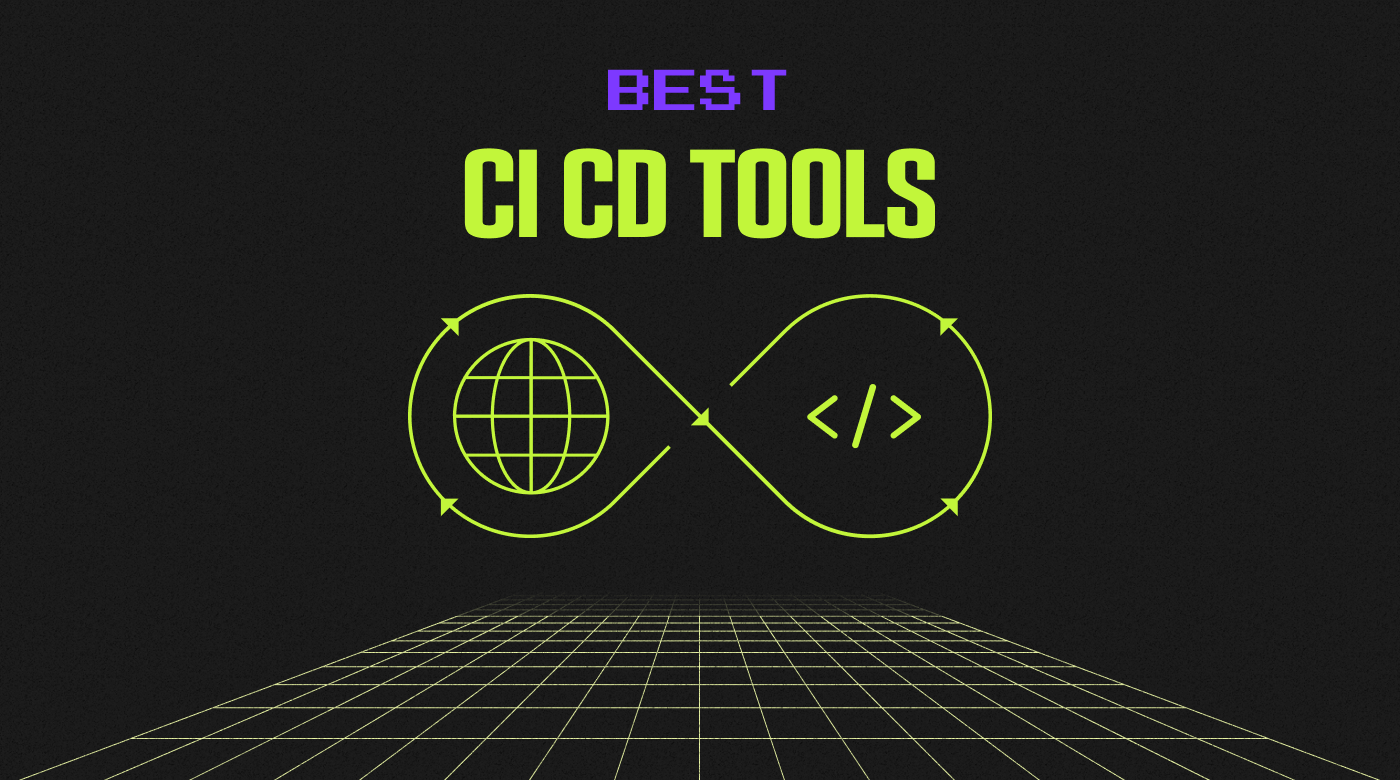Continuous Integration and Continuous Deployment (CI/CD) are essential for startups aiming to develop, test, and deploy applications faster and more reliably. In 2025, the best CI/CD tools offer automation, scalability, and cost-effectiveness tailored to growing teams. This guide provides a detailed comparison of the top CI/CD tools for startups.
Why Startups Need CI/CD Tools
- Speed up product development cycles
- Improve code quality and reduce manual errors
- Automate testing and deployment
- Ensure continuous feedback for better decision-making
- Increase team collaboration and scalability
Best CI/CD Tools for Startups 2025

1. GitHub Actions
Overview: GitHub Actions is a powerful CI/CD solution natively integrated into GitHub repositories.
Key Features:
- Seamless integration with GitHub repositories
- Pre-built workflows and community actions
- Scalable runners for multiple parallel jobs
- Free tier includes 2,000 build minutes per month for public repos
- Customizable YAML configurations Reference: GitHub Actions (https://github.com/features/actions)
2. GitLab CI/CD
Overview: GitLab CI/CD offers an all-in-one DevOps platform with integrated version control, CI/CD pipelines, and monitoring.
Key Features:
- Built-in continuous integration and delivery
- Pre-configured templates and auto DevOps pipelines
- Kubernetes integration
- Real-time monitoring and metrics
- Flexible pricing with generous free tiers Reference: GitLab CI/CD (https://about.gitlab.com/stages-devops-lifecycle/continuous-integration/)
3. CircleCI
Overview: CircleCI is known for speed, scalability, and robust integrations with cloud platforms.
Key Features:
- Cloud and self-hosted options
- Optimized caching and parallelism
- Docker layer caching for faster builds
- Performance insights and detailed analytics
- Free tier with 6,000 build minutes per month Reference: CircleCI (https://circleci.com/)
4. Jenkins
Overview: Jenkins is an open-source, highly customizable CI/CD server.
Key Features:
- Large plugin ecosystem
- Support for distributed builds
- Highly configurable for complex pipelines
- Integration with cloud services and container orchestration
- Best for startups with DevOps expertise Reference: Jenkins (https://www.jenkins.io/)
5. Travis CI
Overview: Travis CI is a simple, developer-friendly CI/CD tool that integrates with GitHub and Bitbucket.
Key Features:
- Easy YAML-based pipeline setup
- Pre-installed build environments for multiple languages
- Free plan for open-source projects
- Email and Slack notifications for build statuses
- Hosted in the cloud with minimal setup requirements Reference: Travis CI (https://www.travis-ci.com/)
Also check:
- AWS vs Azure vs Google Cloud Pricing Comparison
- Is Biometric Authentication Safer than Passwords?
- Best Password Managers for Teams 2025
- Zero-Trust Security Framework Explained In Details
- How to prevent phishing attacks on small businesses
Historical Context
CI/CD practices have evolved significantly from manual deployments to highly automated workflows. Tools like Jenkins pioneered the movement, while cloud-native tools like GitHub Actions and CircleCI have become popular due to their simplicity and scalability, making them ideal for startups.
Fan and Media Reactions
Tech communities on Reddit, Stack Overflow, and Dev.to consistently praise GitHub Actions and CircleCI for ease of use and quick setup. Jenkins, while powerful, is often recommended for teams with dedicated DevOps resources. GitLab CI/CD is recognized for its comprehensive DevOps platform.
Examples with Visuals
Example 1: Early-stage Startup
A SaaS startup uses GitHub Actions for simple, automated deployment to AWS Lambda after every code commit.
Example 2: Scale-up Team
A growing fintech company employs CircleCI for parallel testing and automatic Docker container deployment.
Example 3: Open-source Project
An open-source community project leverages Travis CI for continuous builds and deployment across multiple contributors.
Frequently Asked Questions (FAQs)
Q1: Which CI/CD tool is best for small startup teams?
GitHub Actions and CircleCI are great for small teams due to easy setup and generous free tiers.
Q2: Is Jenkins suitable for startups?
Yes, if the startup has experienced DevOps engineers who can manage and customize Jenkins pipelines.
Q3: Can CI/CD tools integrate with cloud services?
Most modern CI/CD tools integrate seamlessly with AWS, Azure, GCP, and Kubernetes.
Q4: What is the difference between GitHub Actions and GitLab CI/CD?
GitHub Actions is tightly integrated into GitHub, while GitLab CI/CD offers a full DevOps platform with version control, CI/CD, and monitoring in one place.
Q5: Are there free options for startups?
Yes. GitHub Actions, CircleCI, Travis CI, and GitLab CI/CD offer free plans for small teams and open-source projects.
Conclusion or Final Thoughts
Choosing the best CI/CD tool for your startup in 2025 depends on team size, technical expertise, and deployment needs. GitHub Actions and CircleCI are ideal for fast-paced, smaller teams. Jenkins remains the most powerful for custom solutions, while GitLab CI/CD offers an all-in-one platform.
For setup guides and additional resources, visit:
- GitHub Actions (https://github.com/features/actions)
- GitLab CI/CD (https://about.gitlab.com/stages-devops-lifecycle/continuous-integration/)
- CircleCI (https://circleci.com/)
- Jenkins (https://www.jenkins.io/)
- Travis CI (https://www.travis-ci.com/)
Stay tuned for more technology comparisons and DevOps best practices for startups!